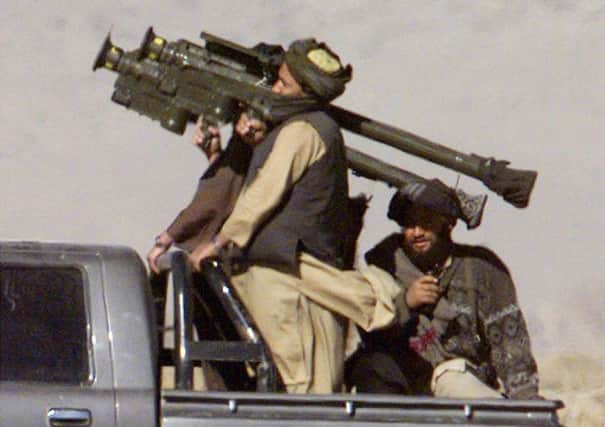Libya: Gaddafi-era missiles smuggled to 14 countries


Since dictator Colonel Muammar al-Gaddafi was overthrown and killed in 2011, investigators said, “Libya has become a primary source of illicit weapons”.
The alleged transfer of arms to 14 countries in violation of a UN embargo is under investigation by the Security Council.
Advertisement
Hide AdAdvertisement
Hide AdResearchers have documented the transfer of Libyan-owned shoulder-fired anti-aircraft missiles to terrorists in Mali and Tunisia, and to others in Chad, Lebanon and “potentially” the war-torn Central African Republic. Libya reportedly had more than 15,000 such weapons unaccounted for.
They said Lebanon’s seizure of a Syria-bound ship in April 2012 proved that there were attempts to transfer these shoulder-fired missiles, as well as short-range surface-to-air missiles to the Syrian opposition from Libya.
Despite efforts by Libya and other countries to account for and secure shoulder-fired missiles, the panel said its sources stated that thousands were still in arsenals controlled by militias and “non-state actors with tenuous or non-existent links to Libyan national authorities.”
The 97-page report details efforts to track a wide variety of weapons and ammunition.
It said significant quantities of arms, and at times fighters, have gone mainly to Syria, Egypt, and northern Africa’s Sahel region.
“This indicates how trafficking from Libya is fuelling conflict and insecurity – including terrorism – on several continents,” they said. “This is unlikely to change in the near future.”
The panel said Libya’s “polarised political landscape” and deteriorating security have left most arsenals in the hands of armed groups, and the government with little capacity to control borders, ports and airports.
The experts said munitions stores from the Gaddafi era are also a source of arms proliferation because they contain large quantities of materiel, are under control of disparate groups, and have generally poor security resulting in regular looting.
Advertisement
Hide AdAdvertisement
Hide AdLibya has experienced great uncertainty in recent days culminating with the voting from office of prime minister Ali Zeidan. He was ousted on Tuesday night by parliament over his failure to crack down on rebels carrying out rogue oil deals which are crippling Libya’s finances. He fled to Europe amid claims he had misused state funds.
The Libyan parliament had demanded action to halt the activities of a rebel group which holds three ports on the Mediterranean which is operating as a quasi-independent state.
It is led by a former anti-Gaddafi commander, Ibrahim Jathran, who was in charge of protecting oil fields and ports until he turned against the government.
His campaign seeking more rights for Libya’s underdeveloped east has won him thousands of armed supporters, but many dismiss him as a warlord.
The standoff between the Libyan authorities and the Jathran militia came to a head in recent days when a privately-owned North Korean-flagged tanker attempted to leave Es Sider port.
Mr Zeidan had threatened to blow up the tanker and ordered a task force to the port, but the tanker escaped, culminating in his removal from office.
In an unexpected intervention, North Korea yesterday said the tanker, thought to be owned by Egyptian businessmen, has had its registration revoked.
Jon Ki-chol, deputy director-general of North Korea’s maritime administration, said it had cancelled the registration of the Morning Glory ship after being notified of the rogue oil deal. Mr Jon said the ship is operated by a company based in Egypt. He said “it has nothing to do with us”.
Libya’s prosecutor general has issued an arrest warrant for the captain and crew and ordered that the tanker be impounded.